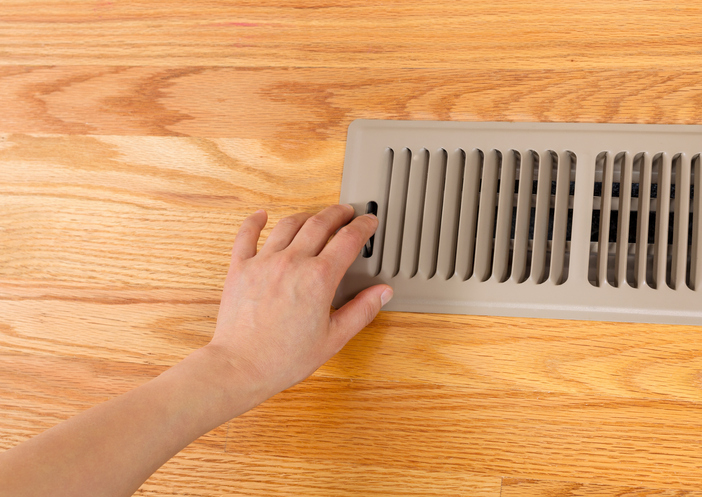On its surface, the idea of closing AC vents in an unused room might make sense. Most people think that by closing a vent, air is then diverted to other open vents, helping to cool off occupied rooms faster. However, that's not quite the way it works. In fact, closing any vents connected to your HVAC system could actually cause a whole list of problems. Read on to find out why closing your vents is a bad idea and what you should be doing instead.
Spoor's Heating & Air Conditioning offers AC services to help keep you the right temperature throughout the year. Contact us today to schedule an appointment.

Causes Temperature & Pressure Imbalance
Closing the vents in one room will make that room hotter than the rest of the home, which can seep through walls and flooring, actually making the rooms around it warmer as well. The air pressure in a room with closed vents will also decrease, meaning that air from the outside will have an easier time funneling through cracks and crevices around windows, doorways, or even in the foundation of that room. This imbalance can cause your AC unit to work harder, limiting its effectiveness.
Limits Airflow
Contrary to what most people think, closing the vents in a room doesn't divert that air to other rooms. What's actually happening is that air will leak from the ductwork, sending cool air into areas such as interior walls and attic spaces. This also makes it so that the air conditioning unit actually has to work harder and may even cause components to expire early, necessitating expensive and avoidable repairs.
Reduces Energy Efficiency
Because the air conditioning unit doesn't know whether or not vents are closed, it will continue to run until the temperature of your home meets the setting requirement. Even if the thermometer for the AC unit isn't in that room, the air that would have gone to that room is now being wasted through duct leaks, which may result in increased utility costs and wasted energy.
May Cause Mold Growth
Proper airflow throughout your home is important to stamp out mold growth. When air from your HVAC unit flows through the rooms of your home, it's helping to disperse moisture which is what mold and mildew need to thrive. A closed vent in an unused room can cause mold and mildew growth. Worse yet, those spores can then make their way into other parts of the house since the room isn't sealed airtight.
How To Actually Increase Airflow
Since ductwork is one of the biggest culprits in air loss, taking them out of the equation entirely is often a great option. Ductless mini splits allow homeowners to have direct control of temperature zones without the need for ducts. These types of units can even end up saving you money in the long run. Also, proper maintenance of any HVAC unit is a must. Even if just one component is out of whack, it can greatly reduce the efficiency of the whole thing.
